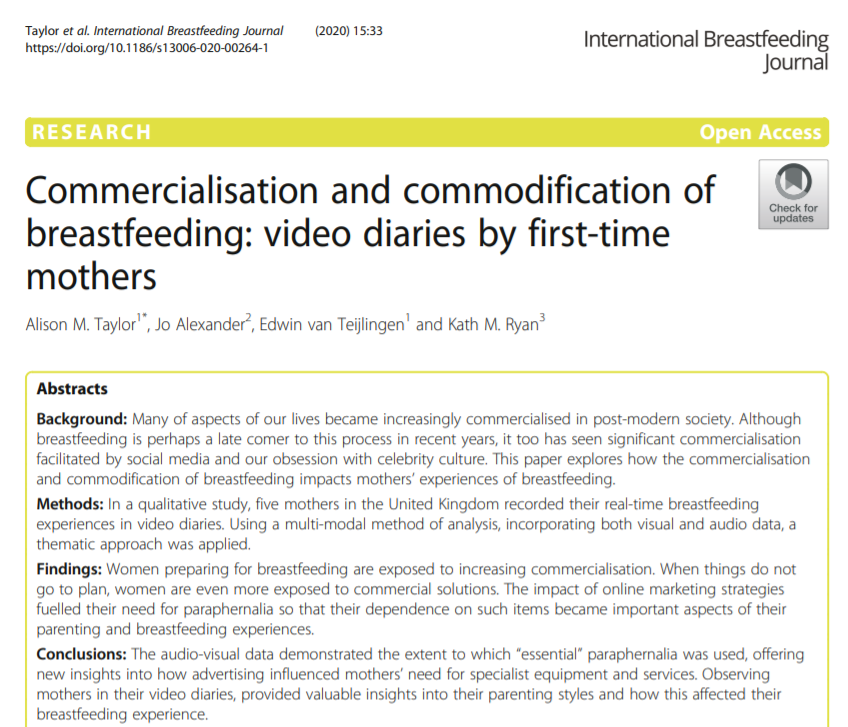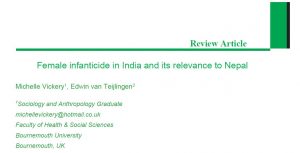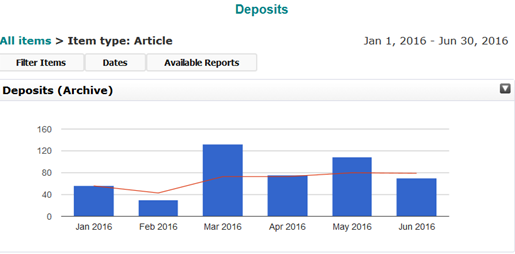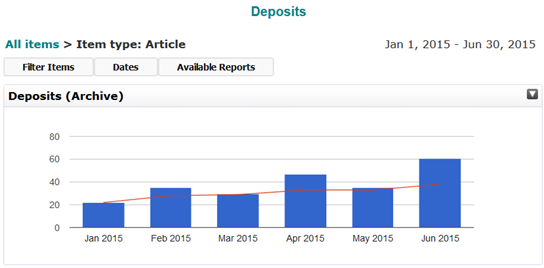
Following a successful upgrade, BRIAN is now up and running again and functioning as normal.
Do send an email to BRIAN@bournemouth.ac.uk if you encounter any issues.
Latest research and knowledge exchange news at Bournemouth University

Following a successful upgrade, BRIAN is now up and running again and functioning as normal.
Do send an email to BRIAN@bournemouth.ac.uk if you encounter any issues.

Just a reminder that BRIAN will be unavailable to users today and tomorrow, Monday, 2nd August and Tuesday, 3rd August for a scheduled upgrade.
If you need any help using the new system or if you encounter any problems after the upgrade, please do send an email to BRIAN@bournemouth.ac.uk and a member of staff will be able to assist you.
In the meantime, if you do have general queries relating to the upgrade, please get in touch with BRIAN@bournemouth.ac.uk
Further information will be available once BRIAN is up and running again following the scheduled upgrade.

BRIAN will be unavailable to users next week on Monday, 2nd August and Tuesday, 3rd August for a scheduled upgrade.
If you need any help using the new system or if you encounter any problems after the upgrade, please do send an email to BRIAN@bournemouth.ac.uk and a member of staff will be able to assist you.
In the meantime, if you do have general queries relating to the upgrade, please get in touch with BRIAN@bournemouth.ac.uk
Further information will be available once BRIAN is up and running again following the scheduled upgrade.
 The following RKEDF training events are coming up this month.
The following RKEDF training events are coming up this month.
These are all online events.
Please email OD@bournemouth.ac.uk to book now!
| Monday 14th June – Wednesday 16th June
Writing Academy A three day workshop including planning and writing your research article, developing a strategy for getting your articles published, read and cited, and a writing day. |
| Thursday 17th June 15:00 – 16:00
Impact and Funding Bids How to write about impact successfully in funding applications. |
| Tuesday 22nd June 13:30 – 15:00
On Writing – Improving Writing Practice How to improve your writing practice by making more compelling knowledge claims, theories and arguments from your research and writing for your audience, with Professor Matthew Bennett. |
| Wednesday 23rd June 16:00 – 17:00
Early Career Researchers Network Meeting There will be presentations from two Early Career Researchers about their respective research projects followed by Q&A. |
| Thursday 24th June 11:00 – 12:30
Getting Started in Public Engagement with Research Public engagement in the research landscape; why it is important and what it can do for researchers. |
| Wednesday 30th June 16:00 – 17:00
BRIAN, Building your staff profile with research websites An introduction to BU’s publication management system. |
BOOKING: Unless otherwise stated, to book, please email OD@bournemouth.ac.uk.
You can see all the Organisational Development and Research Knowledge Development Framework (RKEDF) events in one place on the handy calendar of events.
If you have any queries, please get in touch!
 Congratulations to Dr. Alison Taylor in the Centre for Midwifery, Maternal & Perinatal Health (CMMPH) the publication two days ago of her paper ‘Commercialisation and commodification of breastfeeding: video diaries by first-time mothers’ in the International Breastfeeding Journal [1]. Alison is Deputy Head of Department Midwifery and Health Sciences as well as Infant Feeding Lead. This paper is the third paper from her excellent PhD study It’s a relief to talk…”: Mothers’ experiences of breastfeeding recorded in video diaries. The first and second paper we published in 2019 also with Alison supervisors Professors Jo Alexander, Kath Ryan and Edwin van Teijlingen [2-3]. This third paper focuses on how many of aspects of our lives became increasingly commercialised. Although breastfeeding is perhaps a late comer to this process in recent years, it too has seen significant commercialisation facilitated by social media and our obsession with celebrity culture. This paper explores how the commercialisation and commodification of breastfeeding impacts mothers’ experiences of breastfeeding.
Congratulations to Dr. Alison Taylor in the Centre for Midwifery, Maternal & Perinatal Health (CMMPH) the publication two days ago of her paper ‘Commercialisation and commodification of breastfeeding: video diaries by first-time mothers’ in the International Breastfeeding Journal [1]. Alison is Deputy Head of Department Midwifery and Health Sciences as well as Infant Feeding Lead. This paper is the third paper from her excellent PhD study It’s a relief to talk…”: Mothers’ experiences of breastfeeding recorded in video diaries. The first and second paper we published in 2019 also with Alison supervisors Professors Jo Alexander, Kath Ryan and Edwin van Teijlingen [2-3]. This third paper focuses on how many of aspects of our lives became increasingly commercialised. Although breastfeeding is perhaps a late comer to this process in recent years, it too has seen significant commercialisation facilitated by social media and our obsession with celebrity culture. This paper explores how the commercialisation and commodification of breastfeeding impacts mothers’ experiences of breastfeeding.
This qualitative research is based on five new mothers in the United Kingdom recorded their real-time breastfeeding experiences in video diaries. The purposive sample of five participants recorded 294 video entries lasting 43 h and 51 min, thus providing abundance of rich data. using a multi-modal method of analysis, incorporating both visual and audio data, a thematic approach was applied. The study found that women preparing for breastfeeding are exposed to increasing commercialisation. When things do not go to plan, women are even more exposed to commercial solutions. Under the influence of online marketing strategies the need for paraphernalia grew. Women’s dependence on such items became important aspects of their parenting and breastfeeding experiences. Alison and her co-authors conclude that the audio-visual data demonstrated the extent to which “essential” paraphernalia was used. The paper offers new insights into how advertising influenced mothers’ need for specialist equipment and services. Observing mothers in their video diaries, provided valuable insights into their parenting styles and how this affected their breastfeeding experience.

Thursday 27th February 14:00 -15:00 Talbot
BRIAN (Bournemouth Research Information And Networking) is BU’s publication management system.
BRIAN is also used to capture information regarding outputs to be submitted to the REF2021, and to the mock exercises related to REF2021.
This usage of BRIAN is the focus of this training session.
See here to book. Contact RKEDF@bournemouth.ac.uk if you have any queries.


The BU REF Mock Exercise 2020 has just been launched on BRIAN.
Please select up to 5 of your research outputs for inclusion in the exercise by 8th March. Instructions on how to do this would have been disseminated to you via email.
Selected outputs should:
In some cases, additional supporting information will be needed to accompany your submission. Supporting information can be supplied either via the relevant textbox in BRIAN or, if preferred, uploaded as an attachment to your output, e.g. Word document or PDF. UOA-specific details of the REF requirements for supporting information are included in the guidance attached. See also Panel Criteria and Working Methods, Annex B, pp.90-92 and the related sections indicated.
For information on the REF2021 Submission process at Bournemouth University, please refer to the REF 2021 Code of Practice.
If you have queries about selecting outputs please feel free to contact ref@bournemouth.ac.uk (especially if it is a technical/BRIAN query) or a member of the UOA team who will be happy to help.

You’ll all be really glad to know that BRIAN is now up and running! If you encounter any issues, please do send an email to BRIAN@bournemouth.ac.uk.

BRIAN is being upgraded and will be unavailable for use on Tuesday 28th and Wednesday 29th January.
The main improvements from this upgrade include:
The new and improved features will make BRIAN easier and simplier to use for everyone, whilst also providing a valuable tool to academics helping them record the impact of their research.
We will communicate on the blog as soon as BRIAN is up and running again.

BRIAN will be unavailable to users next week on Tuesday 28th January and Wednesday 29th January for a scheduled upgrade.
If you need any help using the new system or if you encounter any problems after the upgrade, please do send an email to BRIAN@bournemouth.ac.uk and a member of staff will be able to assist you.
Staff are reminded that the REF Mock Exercise 2020 author outputs nomination on BRIAN will take place between 24 Feb and 8th March. For more information and guidance, please get in touch with ref@bournemouth.ac.uk.
In the meantime, if you do have general queries relating to the upgrade, please get in touch with BRIAN@bournemouth.ac.uk
Further information will be available once BRIAN is up and running again following the scheduled upgrade.
If you are new to BU, or have not updated your staff profile for a while, then this short course is for you!

BRIAN (Bournemouth Research Information And Networking) is BU’s publication management system.
Learn how to use BRIAN to manage your research outputs, biography, academic group, memberships, website and social media links, plus many more options.
Thursday 17th October 16:00 – 17:00 at the Talbot Campus
Information input to BRIAN will be displayed in the BU staff profile web pages and can be imported into staff academic profiles (SAP) which is great for networking. BRIAN enables a single point of data entry which will enable research information to be used in multiple places.
Aims and objectives:
If you can’t make the session above, there will be another held on Thursday 19th May, from 10:00 – 11:00 also at the Talbot Campus.
For more details and to book, see here.
 Just before the start of Bournemouth University’s Global Festival of Learning India (12-16 February) the Journal of Manmohan Memorial Institute of Health Sciences published Michelle Vickery’s paper ‘Female infanticide in India and its relevance to Nepal’ [1]. This article developed out of Michelle’s undergraduate Sociology thesis which she completed as part of her undergraduate degree in 2016.
Just before the start of Bournemouth University’s Global Festival of Learning India (12-16 February) the Journal of Manmohan Memorial Institute of Health Sciences published Michelle Vickery’s paper ‘Female infanticide in India and its relevance to Nepal’ [1]. This article developed out of Michelle’s undergraduate Sociology thesis which she completed as part of her undergraduate degree in 2016. The Journal of Manmohan Memorial Institute of Health Sciences is an Open Access journal which means its content is freely available to any reader with internet access across the globe.
The Journal of Manmohan Memorial Institute of Health Sciences is an Open Access journal which means its content is freely available to any reader with internet access across the globe.
Over the last few years Bournemouth University academic have published papers on a range of topics related to India, for example on Media Studies [2-3], English literature [4] , Sociology [5], Public Health [6] , and environmental science and conservation [7-9].
Prof. Edwin van Teijlingen
CMMPH
References:
Emerald has today, 26th September 2017, removed the embargo period on all Green open access. Author accepted manuscripts (AAMs or postprints) of journal articles held in open access repositories such as BURO will now be available on publication. This applies not only from today, but also to any Emerald publications currently under embargo in repositories.

Emerald Group Publishing
This is a huge advance for open access as Emerald had previously extended their embargo periods in response to the RCUK/ Finch statements on embargo periods and green open access.
What is MS?
Multiple Sclerosis (MS) is a chronic debilitating and progressive condition that affects the fatty tissue sheath surrounding nerves. Loss of the myelin sheath is largely responsible for uncoordinated movements because the nerves cannot transmit signals smoothly across the complex neural circuitry. A common symptom of MS is excessive yawning together with fatigue.
Research study
Following recent completion of a study at the Osborne Centre, West Parley, we found that people with MS had higher cortisol levels when yawning compared with healthy participants.
Previous research at Bournemouth University
This research follows several years of research by the author at Bournemouth University with the first report on the “yawning envelope”, identifying the electrical trace during yawning (Refs. 1-2), and the first report on the association between yawning and cortisol levels following provoked yawning (Refs. 3-6).

Yawning “envelope”
“Contagious” yawning is seen in animals as well humans; it may involve empathy to perceived social cues in humans.

Yawning: (clockwise) Fox, Pig, Human, Hippopotamus



A series of 3 Q and A events with talks about findings was held at the MS Society local branch which facilitated an interesting and lively debate among participants, researchers and staff at the Centre.
Further research planned
We believe that threshold levels of cortisol trigger the yawn response which lowers brain temperature, particularly important in MS where brain temperatures can be elevated considerably following fatigue. A funding bid is in preparation to examine early detection of MS using these findings.
About the author
Simon B N Thompson is Associate Professor, Bournemouth University; and Visiting Professor, Université Paris Ouest Nanterre La Défense, France. He has presented to His Excellency Bernard Emié, the French Ambassador at the French Embassy, signalling formation of the Anglo-French International Scientific Council for Research into Multiple Sclerosis.
Acknowledgements
Thanks to all volunteers; Alister Coleman and Nicola Williams for assisting in data collection and analysis; Rod Slip, Group Co-ordinator and Kay Bundy, Fundraising Co-ordinator of the MS Society Osborne Centre for providing free facilities.
References
1. Thompson, S.B.N., 2013. How to catch a yawn: initial observations of a randomised controlled trial. WMC Neurology, 4(8), doi: 10.9754/journal.wmc.2013.004371.
2. Thompson, S.B.N., Frankham, C., & Bishop, P., 2014. The art of capturing a yawn using the science of nerve impulses and cortisol levels in a randomized controlled trial. Thompson Cortisol Hypothesis as a potential predictor of neurological impairment. International Journal of Arts & Sciences, 7(3), 529-543.
3. Thompson, S.B.N., 2011. Born to yawn? Cortisol linked to yawning: a new hypothesis. Medical Hypotheses, 77, 861-862.
4. Thompson, S.B.N., & Bishop, P., 2012. Born to yawn? Understanding yawning as a warning of the rise in cortisol levels: randomized trial. Interactive Journal of Medical Research, 1(2), e4, 1-9, doi: 10.2196/ijmr.2241.
5. Thompson, S. B. N., Daly, S., Le Blanche, A., Adibi, M., Belkhiria, C., Driss, T., de Marco, G., 2016. fMRI randomized study of mental and motor task performance and cortisol levels to potentiate cortisol as a new diagnostic biomarker. Journal of Neurology & Neuroscience, 7(2); 92: 1-8.
6. Thompson, S.B.N., 2017. Hypothesis to explain yawning, cortisol rise, brain cooling and motor cortex involvement of involuntary arm movement in neurologically impaired patients. Journal of Neurology & Neuroscience, 8(1); 167: 1-5.
MS is a chronic debilitating and progressive condition that affects the fatty tissue sheath surrounding nerves. Incomplete innervation due to loss of the myelin sheath is largely responsible for uncoordinated movements. Brain temperature fluctuations are also often seen in people with MS together with fatigue when carrying out mentally or physically demanding tasks. These are commonly associated with excessive yawning yet the cause of fatigue in MS is not well understood.
A recently completed study asked participants to produce saliva into a small tube so that their cortisol levels could be analysed. They were also asked to look at presentations that provoked a yawning response. Results revealed that all of the participants had elevated cortisol levels after yawning and that there was a marked difference in cortisol levels between the healthy participants and those with MS.

Yawning: Pynq Thompson aged 28 days
Thompson Cortisol Hypothesis (Ref.1) proposes threshold levels of cortisol trigger the yawn response which lowers brain temperature. Correlation between brain temperature and cortisol is to be further examined together with comparison between UK and Norwegian participants with MS since the incidence of MS is greater in Scandinavian countries (and Canada and Scotland) possibly due to vitamin D and K reduction with reduced sunlight.
Previous studies have examined electromyograph (EMG) activity during yawning and manipulation of conditions to provoke yawning (Refs. 2,3). Brain regions and cortisol activity has been identified in MS in an international study (Ref. 4); and a new understanding proposed of communication between the motor cortex and brain-stem (Ref.5).

Yawning EMG “envelope” of activity
A funding bid is being prepared to examine the feasibility of producing the early detection of MS and cortisol-insufficiency syndromes using observed yawning frequency and cortisol levels.
Simon B N Thompson is Associate Professor, Bournemouth University; Visiting Professor, Université Paris Ouest Nanterre La Défense, France. Member of International Scientific Council for Research into Multiple Sclerosis following presentation to French Ambassador, His Excellency Bernard Emié, French Embassy.
Acknowledgements
Thanks to all volunteers; Alister Coleman and Nicola Williams for assisting in data collection and analysis; Rod Slip, Group Co-ordinator and Kay Bundy, Fundraising Co-ordinator of the MS Society Osborne Centre for providing free facilities.
Note
The author would welcome interest in collaborating in writing bids for funding international work.
References
1. Thompson, S.B.N., 2011. Born to yawn? Cortisol linked to yawning: a new hypothesis. Medical Hypotheses, 77, 861-862.
2. Thompson, S.B.N., & Bishop, P., 2012. Born to yawn? Understanding yawning as a warning of the rise in cortisol levels: randomized trial. Interactive Journal of Medical Research, 1(2), e4, 1-9, doi: 10.2196/ijmr.2241.
3. Thompson, S.B.N., Frankham, C., & Bishop, P., 2014. The art of capturing a yawn using the science of nerve impulses and cortisol levels in a randomized controlled trial. Thompson Cortisol Hypothesis as a potential predictor of neurological impairment. International Journal of Arts & Sciences, 7(3), 529-543.
4. Thompson, S. B. N., Daly, S., Le Blanche, A., Adibi, M., Belkhiria, C., Driss, T., de Marco, G., 2016. fMRI randomized study of mental and motor task performance and cortisol levels to potentiate cortisol as a new diagnostic biomarker. Journal of Neurology & Neuroscience, 7(2); 92: 1-8.
5. Thompson, S.B.N., 2017. Hypothesis to explain yawning, cortisol rise, brain cooling and motor cortex involvement of involuntary arm movement in neurologically impaired patients. Journal of Neurology & Neuroscience, 8(1); 167: 1-5.
 BRIAN will be upgrading to a new version next week, the main improvements from this upgrade include:
BRIAN will be upgrading to a new version next week, the main improvements from this upgrade include:
These new and improved features will make BRIAN easier and simplier to use for everyone, whilst also providing a valuable tool to academics helping them record the impact of their research
All relevant guidance notes and video guides on the Staff Intranet will be updated in due course. If you need any help using the new system or if you encounter any problems after the upgrade, please do send an email to BRIAN@bournemouth.ac.uk and a member of staff will be able to assist you.
BRIAN training sessions are also available:
With further dates planned. If you are interested to book on to any of these training sessions, please click here to book on!
In the meantime, if you do have queries relating to the upgrade, please get in touch with BRIAN@bournemouth.ac.uk
 At a television interview this morning in Kathmandu I was asked how many papers I had published on health and health-related issues in Nepal. I told the interviewer from BTV Business that it was around 90 to a hundred. Coming back to Green Tara Nepal office I decide to update the list of papers on Nepal to make sure I had not lied too much on TV.
At a television interview this morning in Kathmandu I was asked how many papers I had published on health and health-related issues in Nepal. I told the interviewer from BTV Business that it was around 90 to a hundred. Coming back to Green Tara Nepal office I decide to update the list of papers on Nepal to make sure I had not lied too much on TV.
Adding up the papers, editorials and, to a lesser extent, book chapters I was pleasantly surprised that there were 25 on maternity care & midwifery, 18 on sexual & reproductive health, nine on infectious diseases, five on non-communicable diseases, six on nutrition & child health, three on mental health, two on migration and a further mixture of 38 on topics such as health systems, research methods, or health & education capacity building. If I have not double counted any of the papers that a grand total of 106. Most are co-authored with BU Visiting Faculty Prof.Padam Simkhada (from Liverpool John Moores University), many with PhD students conducting projects in Nepal and, more recently with BU post-doctoral fellow Dr. Pramod Regmi.
Prof. Edwin van Teijlingen
CMMPH
Reference (by topic)
Maternal & Neonatal Health & Midwifery
Sexual & Reproductive Health
Infectious diseases
Non-Communicable Diseases
Nutrition & Child Development
Mental Health
Migration / Occupational Health
Other (including: health systems, research methods, capacity building)
There has been a 206% increase in journal article deposits in BURO (via BRIAN) from January-June 2016 compared with the same period last year, 469 deposits compared to 228.
Journal article deposits January – June 2016

Journal article deposits January – June 2015

Below is the breakdown by Faculty for January – June 2016:
Faculty of Science & Technology = 176
Faculty of Management = 122
Faculty of Health & Social Sciences = 90
Faculty of Media & Communication = 65
Remember, to be eligible for submission in the next REF, journal articles and conference proceedings (with an ISSN), accepted for publication after 1 April 2016, must be made open access.
In practice, this means the accepted version must be deposited in an institutional repository (BURO via BRIAN) or subject repository within a three-month period from the point of acceptance for publication. This generally means creating a brief manual entry rather than waiting for the data feed.
Do contact the BURO team if you need any help with uploading your publication details or files to BRIAN for BURO and remember our useful guide to open access and depositing your research